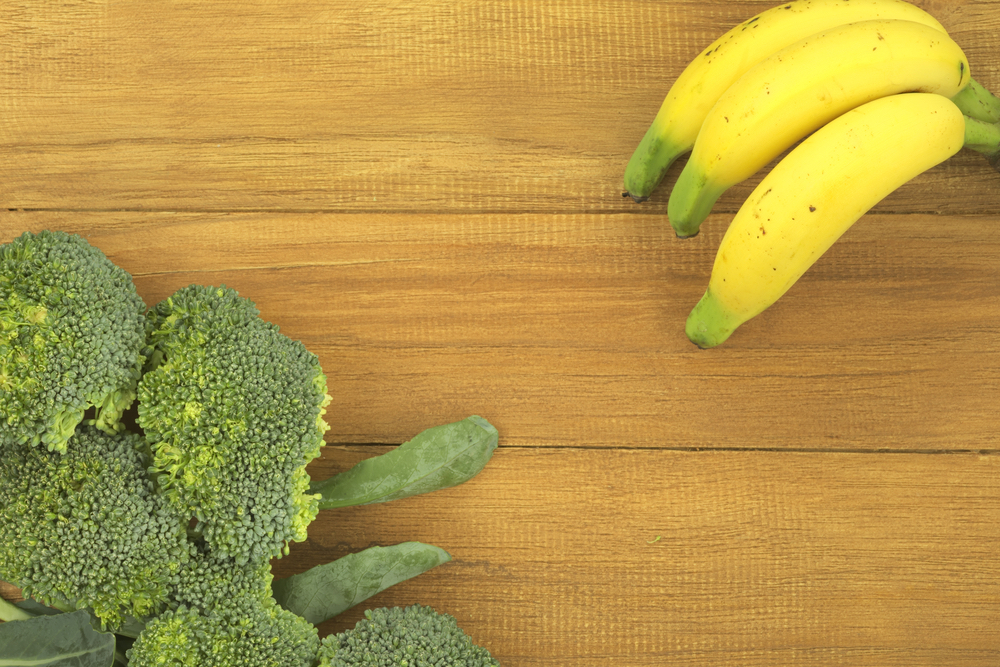
Healthy Alphabet: B is for…five foods that are good for you
We are constantly bombarded with information about what we should and shouldn’t be eating which can become confusing.
Caymanrestaurants.com has decided to go for a simple approach and provide an alphabetical guide to some of the healthiest foods you can add to your diet.
We’ll be going from A-Z and listing five fruits and vegetables that are packed with minerals and vitamins while also providing nutritional facts on their health benefits.
We’ve already covered ‘A‘ so now let’s move on to B.
Banana

Bananas are packed with essential vitamins and minerals such as potassium, calcium, manganese, magnesium, iron, folate and B6.
Experts say bananas strengthen the stomach lining and form a barrier against noxious juices, stimulate cell growth and prevent damage from harsh stomach acids.
Nutrition facts:
- 105 calories.
- 3.1 grams of dietary fibre.
- 14.1 grams sugars.
- 1.3 grams of protein (3% of daily value (DV)).
- 422 milligrams potassium (12% DV).
- 10.3 milligrams vitamin C (17% DV).
- 0.4 milligrams vitamin B6 (22% DV).
- 0.1 milligrams riboflavin (5% DV).
Broccoli

Broccoli belongs to a family of vegetables called cruciferous vegetables, and its close relatives include Brussels sprouts, cauliflower, and cabbage.
Broccoli is one of the best, green vegetables you can add to your diet because it is low in calories, rich in essential vitamins and minerals, and has plenty of fibre.
Nutrition facts (one bunch):
- 207 calories.
- 15.8 grams of dietary fibre.
- 2.2 grams of fat.
- 17.1 grams of protein (34% DV).
- 542 milligrams vitamin C (904% DV).
- 1.1 milligrams vitamin B6 (53% DV).
- 4.4 milligrams of iron (25% DV).
Brown rice

In moderation, brown rice is a nutritious carbohydrate and healthy rice choice overall, which is better for you than its white counterpart. Brown rice is full of vitamins and minerals as well as fibre and protein and can even be enjoyed by anyone following a gluten free diet.
Nutrition facts (one cup):
- 216 calories.
- 44.8 grams carbohydrates.
- 5 grams of protein.
- 1.8 grams of fat.
- 3.5 grams of fibre.
- 1.8 milligrams manganese (88% DV).
- 19.1 micrograms selenium (27% DV).
- 83.9 milligrams magnesium (21% DV).
Brussels Sprouts

Love them or hate them, you cannot deny that Brussels sprouts are good for you. They are low in saturated fat and cholesterol and a good source of fibre, vitamins A and B6, potassium, and manganese, as well as copper, calcium, and iron.
Nutrition facts (1 cup):
- 158 calories.
- 3 grams of protein.
- 3.3 grams of fibre.
- 87.1 milligrams of Omega-3 fatty acids.
- 74.8 milligrams vitamin C (125% DV).
- 156 micro grams of vitamin K (195% DV).
- 0.3 grams manganese (15% DV).
- 342mg of potassium (10% DV).
Butternut squash

Butternut squash is known as a winter squash because it is planted in the summer and harvested in the autumn, but because it has such thick flesh it can be stored for months and enjoyed throughout winter.
Butternut, like most squashes, is a good source of vitamin A, potassium, and fibre and is beneficial for digestion, blood pressure, and healthy skin and hair.
Nutrition facts (one cup of cooked butternut squash):
- 82 calories.
- 1.8 grams of protein.
- 0.18 grams of fat.
- 21.50 g of carbohydrates.
- 6.6 grams of dietary fibre.
- 582 mg of potassium.
- 55 mg of phosphorus.
- 84 milligrams (mg) of calcium.
Watch out for the rest of the healthy food alphabet in this series to be published on Caymanrestaurants.com.
By Karen Rollins
Karen is the senior writer for Yello Media Group of which Caymanrestaurants.com is a subsidiary, and this article originally published on Findyello.com in 2020.
Sources: The Food Coach (http://www.thefoodcoach.com.au/food/?Alpha=%5BA-Z%5D), Draxe (https://draxe.com/brown-rice-nutrition/), Medical News Today (https://www.medicalnewstoday.com/articles/284479.php) and BBC Good Food (https://www.bbcgoodfood.com/feature/health-nutrition)
